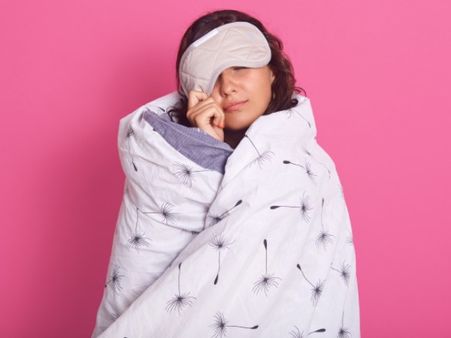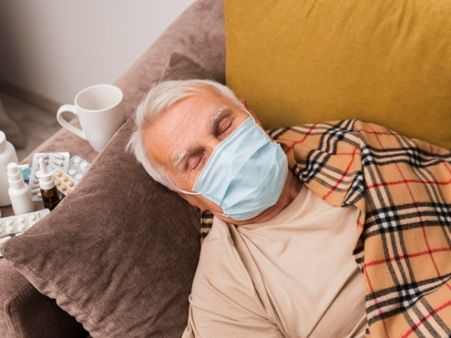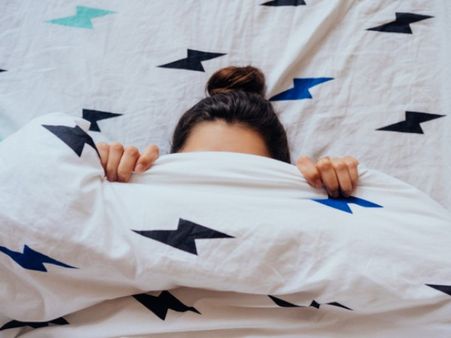Just In
- 6 min ago

- 4 hrs ago

- 6 hrs ago

- 7 hrs ago

Don't Miss
- News
 FIR Filed Against DK Shivakumar Over Poll Code Violation
FIR Filed Against DK Shivakumar Over Poll Code Violation - Automobiles
 Ola Electric Hits New Milestone – 500th Service Centre Opened In Kochi
Ola Electric Hits New Milestone – 500th Service Centre Opened In Kochi - Sports
 KKR vs RCB IPL 2024 Playing 11: Kolkata Knight Riders vs Royal Challengers Bengaluru Team News, Predicted Lineup
KKR vs RCB IPL 2024 Playing 11: Kolkata Knight Riders vs Royal Challengers Bengaluru Team News, Predicted Lineup - Education
 Railway RPF Recruitment 2024; Apply Online for 4660 Post Vacancies @rpf.indianrailways.gov.in
Railway RPF Recruitment 2024; Apply Online for 4660 Post Vacancies @rpf.indianrailways.gov.in - Movies
 Do Aur Do Pyaar Box Office Collection Day 2 Prediction: Vidya-Pratik's Rom-Com To Cross 1 Cr On Saturday
Do Aur Do Pyaar Box Office Collection Day 2 Prediction: Vidya-Pratik's Rom-Com To Cross 1 Cr On Saturday - Finance
 Elon Musk Postpones India Trip, Tesla's Indian Market Entry Delayed
Elon Musk Postpones India Trip, Tesla's Indian Market Entry Delayed - Technology
 Best Noise-Cancelling Earbuds Under Rs 5,000: CMF Buds Pro, Redmi Buds 5, Realme Buds Air 5, and More
Best Noise-Cancelling Earbuds Under Rs 5,000: CMF Buds Pro, Redmi Buds 5, Realme Buds Air 5, and More - Travel
 Journey From Delhi To Ooty: Top Transport Options And Attractions
Journey From Delhi To Ooty: Top Transport Options And Attractions
What Is COVID-Somnia? Here's How To Deal With It
Since its advent in December 2019, the Covid-19 pandemic has caused 1,393,671 deaths, affecting over 58,985,500 people. Covid-19 can affect anyone, causing symptoms ranging from mild to very severe, where some people may be more likely to have severe illness than others because they have characteristics or medical conditions that increase their risk [1].

Along the with new normal that is no longer 'new,' our lives have welcomed many other changes, and out of these, some tend to affect us more than the others like the changed working schedule, going out on a weekend and such. ALSO READ: COVID-19 LIVE UPDATES
Experts say that this shift in one's lifestyle is bound to affect one psychologically, physically, and emotionally, resulting in one of the most common problems, that is, lack of sleep [2]. Even pre-COVID, a significant part of the global population suffered from some form of a sleep disorder [3], and with the advent of the worldwide pandemic, the numbers have only elevated.

Lack Of Sleep: A Major COVID-19 Dilemma
Adequate sleep is as important as having nutritious food when it comes to maintaining a healthy lifestyle. The way poor lifestyle habits, untimely meals and lack of exercise cause many diseases, lack of enough sleep can also cause serious health problems [3]. You would need at least six hours of sleep every day for the mind to function correctly and for the body to remain healthy [4].
Lack of sleep can pave the way to several health issues such as obesity, weak immune system, fatigue, neurological disorders, risk of chronic diseases, poor sex life, skin disorder, heart disorders, and impaired memory etc. [5].
Coupled with the stress and uncertainty of the looming pandemic, you may find yourself tossing and turning in your sleep, contrary to the reports during the initial months of the COVID lockdown, where people reported better sleeping hours and quality. Neurologists explain that "As people were working from home, they had more flexible schedules, they didn't have the same stress of going to the office, waking up early, beating the traffic and not missing on a half-day's salary" [6].
The experts further stated that this permitted people of having the luxury to sleep when they feel sleepy, resetting their whole system and thereby promoting better sleep quality. However, this came to a halt with pandemic not coming to a halt - resulting in low sleep quality [7].

What Is COVID-Somnia?
Recently, there has been a surge in sleep disorders associated with Covid-19, which is being termed as COVID-somnia. Reports suggest that due to the fears of contracting the coronavirus, concerns about loved ones, not being able to go to work, not having social contact with others have attributed to the shifts in sleeping patterns [8][9].

COVID-somnia is connected to additional stress and anxiety brought on by the pandemic, which can be understood through the rapid spike in the number of mental health issues [10]. It is a proven fact that anxiety is a common trigger of sleep issues, and considering the current situation, your anxiety levels may be high, especially during the nights.
This is because during the day, we ‘cope' with distractions, and at night, you are left alone with your thoughts, which can make you feel worried about the unforeseen future, disturbing your sleep. Loss of sleep affects not only mood and attention but the body's immune functioning and its ability to fight infections, a factor that is extremely important during the COVID times [11].

Abnormal dreams and disruptive nightmares are other types of sleep disturbance that can be triggered by the pandemic, which has a direct impact on the psychological and mental well-being of individuals [12].

How To Manage COVID-Somnia?
According to experts, these are some of the ways through which you can manage your sleep:
Sleep hygiene, also called as healthy sleeping habits are the best means to prevent yourself from being adversely affected by sleep deprivation [13].
•
Leave
electronics
and
work-related
things
out
of
the
bedroom.
•
Set
up
a
bedtime
routine
such
as
having
a
warm
bath
or
shower,
meditate
or
read
a
book
in
bed.
•
Practice
good
sleep
hygiene,
such
as
going
to
bed
and
waking
up
at
about
the
same
time,
even
on
weekends.
•
Maintain
a
dark
and
cold
atmosphere
in
your
bedroom.
•
Do
not
fluctuate
your
bedtime
and
wake
up
time.
•
Avoid
large
meals
for
at
least
three
hours
before
bed.
•
Avoid
caffeine
at
least
eight
hours
before
sleeping.
•
Do
not
consume
alcohol
right
before
sleeping.
•
Exercise
regularly
as
studies
point
out
that
people
sleep
better
and
feel
more
alert
during
the
day
if
they
exercise
[14].

How does sleep issues affect someone with existing health problems?
Lack of sleep or disturbed sleep has been linked to the development and management of several chronic diseases and conditions, including type 2 diabetes, cardiovascular disease, obesity, and depression [15].
Diabetes: Insufficient sleep is linked to an increased risk for the development of type 2 diabetes.
Obesity: Short sleep duration results in metabolic changes that may be linked to obesity in all age groups.
Depression: Sleep and depression are internally linked, and lack of sleep has been described as an important symptom of depression.
Cardiovascular disease: Persons with sleep apnoea are at increased risk for several cardiovascular disorders [16].
Chronic pain and arthritis: Patients with rheumatoid arthritis have lower overall sleep efficiency and wake up more often, which in turn increases the inflammation and causes more pain [17].

On A Final Note…
Focus on your mental health to improve sleep quality. The quality of your sleep directly affects your mental and physical health and the quality of your waking life, including your productivity, emotional balance, heart health, weight and many more. While the sleep requirement of one individual differs from the other, health experts and studies point out that it is critical for an adult to get 6 to 9 hours of sleep every night, to avoid the onset of various health problems.
-
 disorders cureIndia May See A Covid Surge In January, Next 40 Days Crucial; Here Is How To Protect Yourself From COVID-19
disorders cureIndia May See A Covid Surge In January, Next 40 Days Crucial; Here Is How To Protect Yourself From COVID-19 -
 disorders cureCOVID Can Trigger Parkinson's Disease: Study
disorders cureCOVID Can Trigger Parkinson's Disease: Study -
 disorders cureCommon COVID Symptoms In Fully Vaccinated Individuals: What You Should Know
disorders cureCommon COVID Symptoms In Fully Vaccinated Individuals: What You Should Know -
 wellnessMild COVID Linked To Life-Threatening Blood Clots, Increased Risk Of Cardiovascular Disease; Study
wellnessMild COVID Linked To Life-Threatening Blood Clots, Increased Risk Of Cardiovascular Disease; Study -
 wellnessCOVID-19 Variants In India: New COVID Variant May Pose Threat To Elderly People
wellnessCOVID-19 Variants In India: New COVID Variant May Pose Threat To Elderly People -
 basicsCovid-19 Linked To Early Onset Of Periods: What You Need To Know
basicsCovid-19 Linked To Early Onset Of Periods: What You Need To Know -
 wellnessCOVID XBB Variants Of Omicron In India: What You Should Know
wellnessCOVID XBB Variants Of Omicron In India: What You Should Know -
 disorders cureNew Omicron Subvariant BQ.1 Detected In Maharashtra: What You Should Know
disorders cureNew Omicron Subvariant BQ.1 Detected In Maharashtra: What You Should Know -
 disorders cureOmicron BF.7 In India, Risk Of Fresh Wave During Diwali: What You Should Know
disorders cureOmicron BF.7 In India, Risk Of Fresh Wave During Diwali: What You Should Know -
 womenPriyanka Chopra Speaks On Climate Change, COVID, Poverty At The UN Sustainable Development Goals 2022 Moment
womenPriyanka Chopra Speaks On Climate Change, COVID, Poverty At The UN Sustainable Development Goals 2022 Moment -
 wellnessCoronavirus Residues Might Be Causing Long COVID: New Study
wellnessCoronavirus Residues Might Be Causing Long COVID: New Study -
 art cultureRenowned Spanish Author Javier Marias Passes Away Due To Lung Infection Post COVID-19
art cultureRenowned Spanish Author Javier Marias Passes Away Due To Lung Infection Post COVID-19


 Click it and Unblock the Notifications
Click it and Unblock the Notifications



